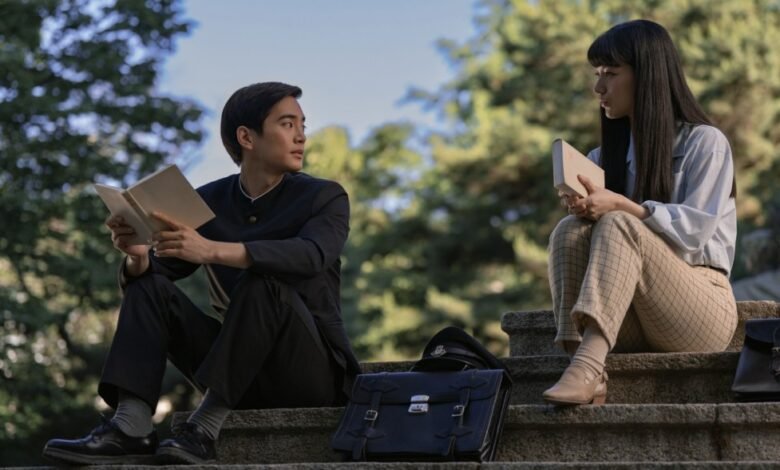‘Pachinko’ Showrunner Soo Hugh Delves Into Noa’s Emotional Story & The Intensity Of Filming The “Jalapeno” Scenes

[ad_1]
SPOILER ALERT: This post contains spoilers for the Pachinko Season 2 finale.
Pachinko is both sprawling epic and emotional rollercoaster – and nothing captures that better than the season 2 finale that just dropped on Apple TV+. The series follows a Korean family across four generations and takes in historical events and family drama as the resolute Sunja moves from her home country to Japan.
When, in the season closer, Noa’s privileged university girlfriend Akiko (Kilala Inori), utters the line that changes his life — “Noa, Hansu is your father” — his violent reaction sets the scene for a showdown with his biological father, and a climactic meeting with Sunja, his mother.
“Kang Tae Ju (Noa) is just an extraordinary actor and that was actually a really hard day shooting, he had to leave set a few times because it was so emotional for him,” Soo Hugh, series creator, showrunner and exec producer told Deadline when asked about the scene with Akiko and Noa.
“We always ask actors to give us the mild, medium and jalapeno versions of each scene. We say, let’s do the mild version, give us the baseline version, and then give us the jalapeno version, where you dial it up.
“Once he had gotten to the jalapeno version and started, his body started shaking. At some point, you’re asking, what are we putting this person through? I asked him: ‘Do you want to stop? Should we just cut?’ He said: ‘No, I need to do this, I just need a minute.’”
The scene was shot in Toronto where Pachinko was filming. “You have moments like that on set where you realize, in some ways, it’s not just acting, it’s a whole history of a person coming out,” Hugh said.
The final episode of the series based on the Min Jin Lee novel covers a lot of ground and packs a hefty emotional punch.
Hugh said: “That finale, it was tough and one of the questions is, when is it too much? I love melodrama. I don’t feel ashamed saying I write melodrama, but I think there is that line you can cross, and it becomes a little bit too much. And so that was really a big question for that episode: When do you cross that line?”



